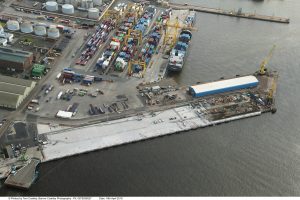The Federal Government Friday explained why it continued to intervene in the pump price of fuel, pointing out that it is to ensure price stability.
The Special Adviser to the President on Energy, Mrs. Olu Verheijen, speaking in Abuja on Friday, during the Ministerial Press Conference hosted by the Minister of Information and National Orientation, Mohammed Idris Malagi, dismissed fears that fuel subsidy which was removed on May 29, 2023, has been reintroduced.
According to Mrs. Verheijen it remains the prerogative of government to maintain price stability, as it is done in developed and several other countries.
She said: “Subsidy was removed on May 29, 2023. However, the government has the prerogative, whether in the US, in the West and other Eastern countries, to maintain price stability so as to prevent social unrest.
“If prices are moving upwards, they reserve the right to intervene. It started in the US during COVID-19. There was a lot of expansionist moves, but also subsidies.
“All governments reserved that right. And so, if for whatever reason this administration has reviewed that it is not the right time to have prices continue to fluctuate, given the level of hardship in the country, given the inflation, the government has the right to intervene intermittently.
“All governments do so, but it does not take away the fact that the subsidy was removed”.
The Special Adviser emphasised that part of the objective of the fiscal incentives that the President Bola Tinubu recently signed into law is to reverse the over 70 per cent undeveloped gas reserves, advising that Nigeria should to attract capital to that sector of the infrastructure.
She stated that there was no one who was going to invest in gas infrastructure if they don’t have assurances in the area of gas supply.
“So, if gas suppliers are not making any investment because the fiscal terms of the business environment is a very difficult one to invest in, then it will be difficult to continue to mature mainstream projects and downstream projects because you have to deal with the problem ab initio, which is gas supply.
“And that is exactly what President Bola Ahmed Tinubu has done by fast-tracking this policy directive to ensure we have sufficient gas supply, whether we’re trying to export, whether we’re trying to compress natural gas or liquefied for domestic use, whether we’re trying to have floating energy as an alternative way of getting gas into the market, all of those things are enabled by these policies.
“There are lots of investors who are interested in making investments in the infrastructure, but it’s like building a road without having a car to drive with it. You cannot invest in infrastructure to compress gas if there is no gas available,” she stressed.
She further harped on the rule on Local Content Practice Reform, pointing out that “this directive seeks to ensure that local content requirements are implemented in a manner that does not impede investments or the cost competitiveness of oil and gas projects.
“This directive aims to reduce the cost premium of operating in Nigeria, presently averaging at 40%.
“We anticipate significant benefits from this reform, including the development of local companies’ capacity, thereby generating additional business opportunities, job creation and boosting economic growth
“We will sustain engagement and collaboration with key investors to ensure we attract capital and capabilities to this sector to catalyze job creation, productivity, income growth across multiple sectors,” she stressed.
Earlier, the The Information minister called on Nigerians to continue to support President Bola Ahmed Tinubu so he can steadily unfold his laudable agenda for the development of the country, pointing out that the challenges being faced were majorly problems inherited over the years.
Idris gave the assurances of President Tinubu to continue to unfold programmes and agenda that will improve the life and living standards of Nigerians, stressing that the President is passionate about that.




